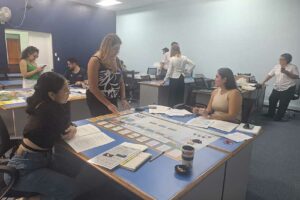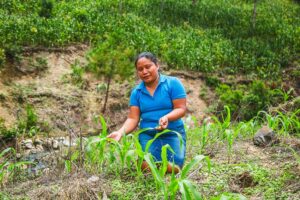Study shows key municipal investments in food security in Guatemala
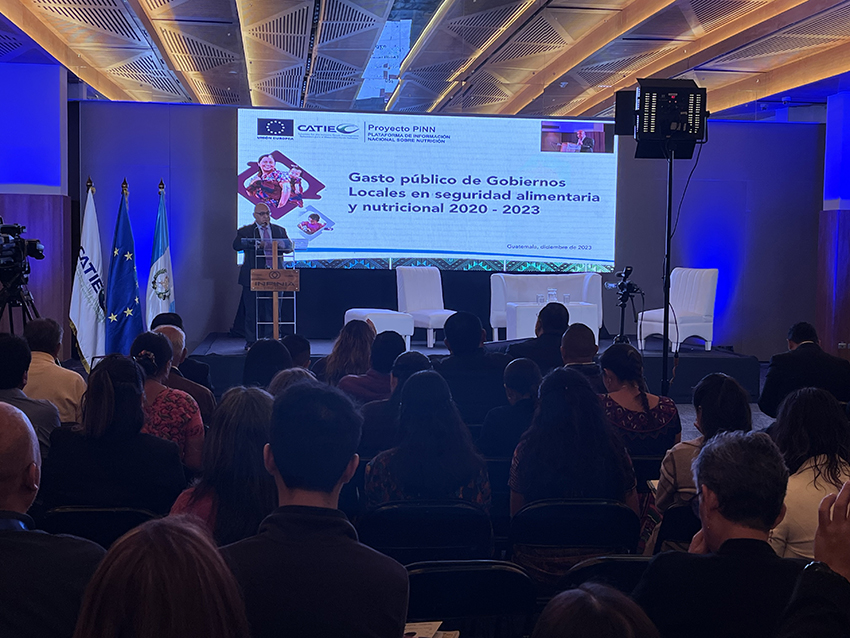
- The analysis of municipal public spending, presented by CATIE, will outline policies to combat extreme poverty and food insecurity in the coming years.
December 11, 2023. The National Information Platform on Nutrition (PiNN) project, implemented by CATIE (Tropical Agricultural Research and Higher Education Center) and funded by the European Union, presented the study on the Analysis of Municipal Public Expenditure on Food and Nutrition Security (GPSAN) in Guatemala. This work was developed in the framework of the strengthening of the National Food and Nutritional Security System (SINASAN).
Eduardo Say, coordinator of the PiNN project, indicated that the study answers the questions "What is the budget invested by municipalities in food security and nutrition?" and "What is the budget for food security and nutrition at the departmental level in Totonicapán?" questions that were posed by decision makers. Say added that, based on these questions, the investment, at the municipal level, of public spending on food security and nutrition for the period 2020-2023 was analyzed, based on the programmatic structure and funding sources.
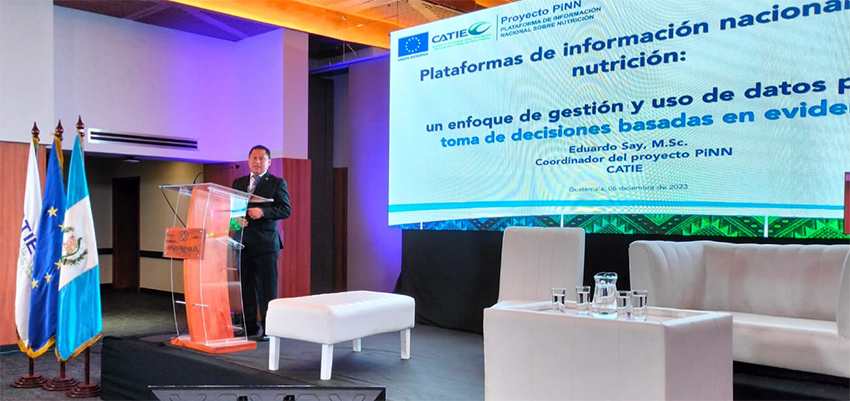
Regarding the methodology used, Enrique Maldonado, research consultant of the PiNN project, commented that the Public Expenditure and Accountability Program was used. He added that in the case of this study, the municipalities with the best results were identified, as well as those that have challenges to overcome in terms of efficiency indicators, budget credibility, sufficiency of public spending, and public management indicators.
Finally, Maldonado indicated that the prioritized municipalities were compared with those not prioritized by the current government's strategy, the Great National Crusade for Nutrition, in order to measure investment in food security.
The presentation of the study was attended by authorities of the Delegation of the European Union, representatives of institutions and organizations that are part of SINASAN, the Instance for Consultation and Social Participation (INCOPAS) and the Group of Support Institutions (GIA), as well as members of the associations of municipalities, representatives of international cooperation, staff of the institutions of the Executive Branch, the cluster of nutrition and food security, research centers, academia and members of the transition team of the incoming central government.
Also present were mayors-elect for the 2024 to 2028 term from San Idelfonso Ixtahuacán and San Gaspar, in the department of Huehuetenango; from the municipality of Nebaj, in the department of Quiché; and from Momostenango, Santa María Chiquimula and Santa Lucía la Reforma, in the department of Totonicapán. Also participating were advisors and councilors, such as the councilor of the municipality of Guastatoya el Progreso.
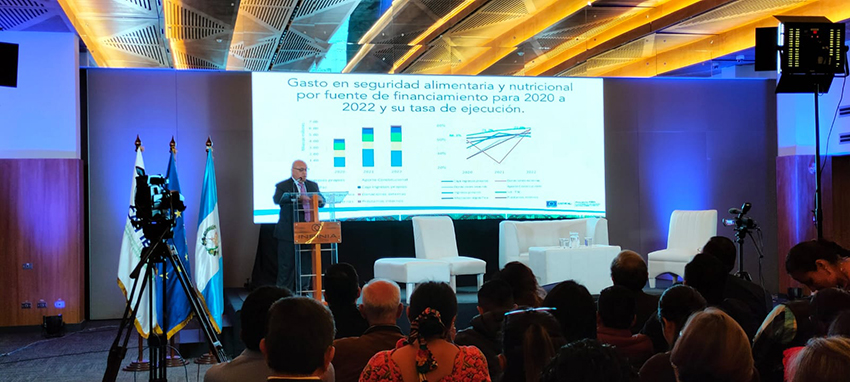
Julio Alba, municipal mayor-elect 2024-2028 of San Idelfonso Ixtahuacán, pointed out that the information given in this activity was very important. "My commitment now on the issue of food security is to manage the projects directly so that they truly reach our municipalities and communities that are in extreme poverty," he said.
For his part, Juan Chibalan, municipal mayor-elect of Santa Lucía la Reforma de Totonicapán, commented that the data and information provided was very interesting. "For example, in my municipality we can only grow corn, this is the only business our people have once a year, that is why my commitment is to invest in food and nutritional security," he said.
Sandra Recinos, nutrition advisor for the USAID-funded Jhpiego Health and Nutrition project, mentioned that the study provides many elements of analysis, particularly when it says that we need to work on development, employment and education of people in order to make a change in the issue of nutrition. He also commented that the presentation of the study was very well structured and enriching in terms of the information provided by each expert. He concluded by congratulating CATIE for this initiative.
Susana Fernández, from the Delegation of the European Union in Guatemala, thanked CATIE and the entire team for this work and indicated that having reliable information is very important not only to know the reality but also to make the right decisions. He also mentioned the European Union's commitment to the fight against poverty and, in particular, against food insecurity.
Finally, Julio López, CATIE representative in Guatemala, expressed his gratitude to the Delegation of the European Union in Guatemala for having trusted CATIE to contribute, through the PiNN project, in the generation of this type of studies that show the food insecurity situation at the budget and municipal expenditure level.
López added that CATIE is an academic institution that works with a knowledge management approach, which involves the search for information and analysis of solid data that can contribute to evidence-based decision making, thus allowing for better interventions. He concluded by mentioning that it is important to keep in mind that this data being analyzed has a face.
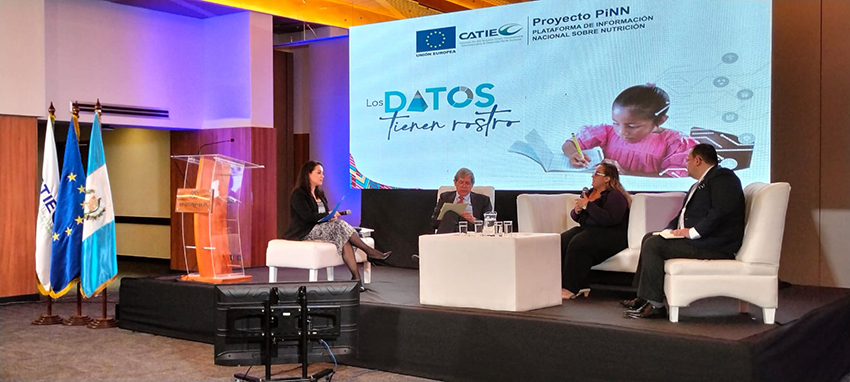
Written by:
Ninoshka Lou
Communicator
PiNN Project/CATIE
Ninoshka.lou@catie.ac.cr

